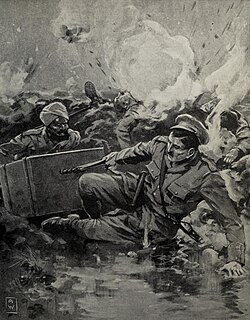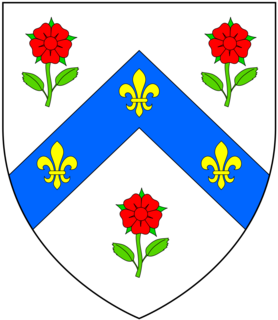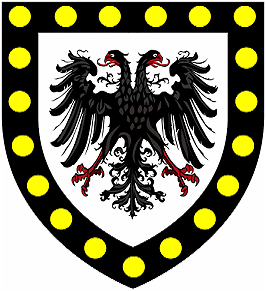
There have been six baronetcies created for persons with the surname Smyth, two in the Baronetage of England, one in the Baronetage of Great Britain, one in the Baronetage of Ireland and two in the Baronetage of the United Kingdom. One creation is extant as of 2010.

The Ashe Baronetcy, of Twickenham in the County of Middlesex, was a title in the Baronetage of England. It was created on 19 September 1660 for Joseph Ashe, subsequently Member of Parliament for Downton. The second Baronet also represented Downton in Parliament. The title became extinct on his death in 1733.

The Atkins Baronetcy, of Clapham in the County of Surrey, was a title in the Baronetage of England. It was created on 13 June 1660 for Richard Atkins. The second Baronet sat as Member of Parliament for Buckinghamshire. The title became extinct on the death of the sixth Baronet in 1756.
Sir John Barker, 4th Baronet was an English baronet and politician.

The Samwell Baronetcy, of Upton in the County of Northampton, was a title in the Baronetage of England. It was created on 22 December 1675 Thomas Samwell, later Member of Parliament for Northamptonshire and Northampton. He was the great-grandson of Sir William Samwell, Auditor of the Exchequer to Queen Elizabeth I of England. The second Baronet sat as Member of Parliament for Coventry. On the death of the fourth Baronet in 1789, the title became extinct.

There have been four baronetcies created for persons with the surname Hope, three in the Baronetage of Nova Scotia and one in the Baronetage of the United Kingdom. As of 2010 one creation is extant, one dormant and two extinct.
There have been two baronetcies created for people named Cole, one in the Baronetage of England and one in the Baronetage of Ireland.

There have been five baronetcies created for members of the old established family of Peyton of Peyton Hall in the parish of Boxford in Suffolk, all of whom were descended from Sir Robert Peyton (d.1518) of Isleham in Cambridgeshire, grandson and heir of Thomas Peyton (1418–1484) of Isleham, twice Sheriff of Cambridgeshire and Huntingdonshire, in 1443 and 1453. All the baronetcies are extinct.

There have been three baronetcies, all in the Baronetage of England, created for members of the Spencer family, both for descendants of two younger sons of Sir John Spencer (1524–1586) of Althorp, Northamptonshire:
Sir John Delaval, 3rd Baronet was an English politician.

There have been four baronetcies created for persons with the surname Cope.
The Halton Baronetcy, of Samford Parva in the County of Essex, was a title in the Baronetage of England. It was created on 10 September 1642 for William Halton. The title became extinct on the death of the sixth Baronet on 9 February 1823 aged 77.

The Keate Baronetcy, of The Hoo in the County of Hertford, was a title in the Baronetage of England. It was created on 12 June 1660 for Jonathan Keate, subsequently Member of Parliament for Hertfordshire. The title became extinct on the death of the fourth Baronet in 1757.

The Killigrew Baronetcy, of Arwennick in the County of Cornwall, was a title in the Baronetage of England. It was created on 22 December 1660 for William Killigrew (d.1665), 6th son of John Killigrew (c.1557-1605) of Arwenack, near Falmouth in Cornwall, thrice MP for Penryn in 1584, 1586 and 1597, and Vice-Admiral of Cornwall and like his father and grandfather was Captain of Pendennis Castle (1584–98) The 1st Baronet was created a baronet at the Restoration of the Monarchy in 1660, which event was largely brought about by his uncle George Monck, 1st Duke of Albemarle (1608-1670). He died without progeny and the title by special remainder descended to his nephew Peter Killigrew, son of his elder brother Sir Peter Killigrew (1593-1667), MP for Camelford. The second Baronet was Member of Parliament for Camelford. The title became extinct on his death in 1704.

The Elwes Baronetcy of Stoke-by-Clare in the County of Suffolk, was a title in the Baronetage of England held by the Elwys family, whose name through the years has alternately been spelled Helwish, Helewise, Helwys, Elwaiss and Elwaies.
Sir William Williams, 6th Baronet of Faenol (Vaynol) was a Welsh politician and landowner elected as MP for Caernarvonshire from 1689 until his death.

There have been two baronetcies created for persons with the surname Danvers, one in the Baronetage of England and one in the Baronetage of Great Britain. Both creations are extinct.

Sir Thomas Biggs, 1st Baronet, was an English politician.

The Assheton Baronetcy, of Middleton in the County of Lancaster, was created in the Baronetage of England on 17 August 1660 for Ralph Assheton. The second Baronet sat as Member of Parliament for Liverpool and Lancashire. The title became extinct on the death of the third Baronet in 1765.

The Abdy baronetcy, of Albyns, in the County of Essex, was created in the Baronetage of England on 9 June 1660 for Robert Abdy. It became extinct on the death in 1759 of the 4th baronet.














